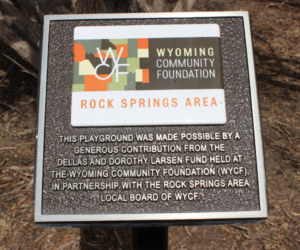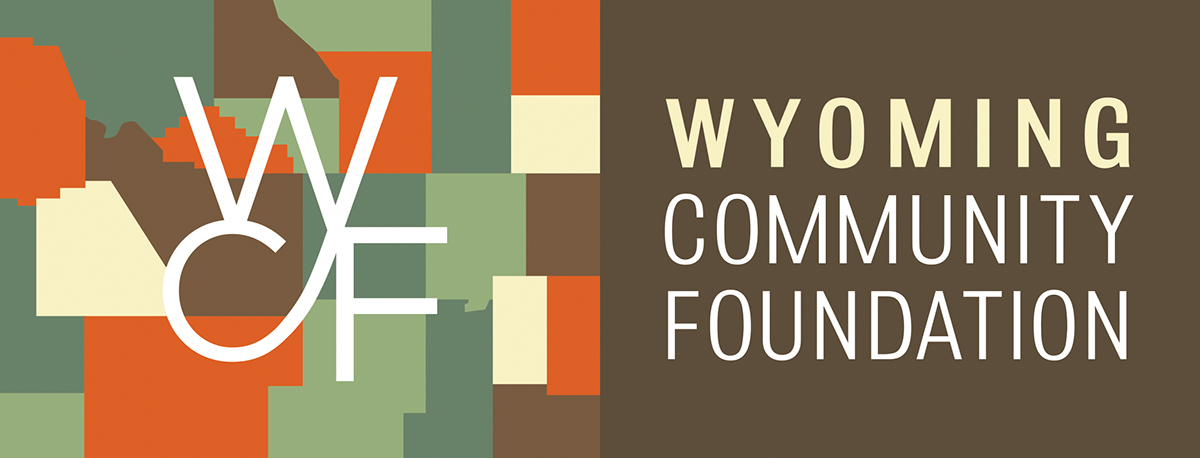
Tips You Can Trust: Maximize Your Client’s Philanthropic Goals
Proposed DAF Regulations, the Benefits of Flexible Funds, and Assets That Make Great Charitable Gifts
Happy spring from the Wyoming Community Foundation!
As the weather warms up and people begin to venture outside, your clients’ already busy schedules start to get even busier. Even if your clients are tempted to log off and enjoy the sunshine, we encourage you to help them stay the course. Your clients’ 2024 financial and estate planning goals are important, and now is the time to start tackling those strategies, especially after the tax season dust settles.
To help keep WYCF’s resources at your fingertips, we’re covering three topics that have been the subject of many advisors’ inquiries over the last few weeks.
-
- Last November, the Treasury released proposed regulations related to donor-advised funds. Although these proposed regulations are just that–proposed and not final–nevertheless, in recent weeks the media coverage has gained momentum, especially now that Ways and Means members have weighed in. The Wyoming Community Foundation is on top of the issues, and our team is always ready to share the latest insights.
- Jump to DAF Regulations >
- Help your clients get ahead in their estate planning by leaning into the flexibility and benefits of a fund at the community foundation, including your clients’ ability to leave permanent legacies to support the community for generations to come.
- Jump to “Shell Funds” >
- Following every tax season, many advisors share with our team that they wish they’d been aware of the many asset types that make great gifts to a fund at WYCF. We’re happy to provide a list of the wide range of property that your clients can deploy to meet both their tax goals and their charitable goals.
- Jump to Celebrate Variety >
Thank you for the opportunity to work together! We appreciate so many of you reaching out with questions and insights from your practice, as well as referrals of your clients for which we–and the community–are so grateful.
Your friends at the Wyoming Community Foundation
What’s Bubbling Up: Need-to-know updates on the proposed donor-advised fund regulations
The Wyoming Community Foundation is committed to providing timely updates on legal and policy developments to help you and other professionals who advise philanthropic clients stay on top of best practices in charitable planning. In that spirit, donor-advised funds and the rules governing these vehicles are topics that are popping up more frequently in financial and even mainstream media. Our team is closely watching these regulatory developments.
WYCF staff appreciated this opinion piece regarding those proposed regulations from the Chronicle of Philanthropy.
As background, in November 2023, the Internal Revenue Service issued proposed regulations that would change the way donor-advised funds are defined and how they operate. Especially leading up to the May 6, 2024 public hearings, the proposed regulations have created quite a buzz. If you’d not yet heard about the proposed regulations, the April 19, 2024 letter to Treasury Secretary Janet Yellen, signed by 33 members of Ways and Means, might have grabbed your attention. The letter lays out concerns that “these regulations could have the unintended consequence of impeding charitable giving in our communities, particularly at our local community foundations.” You’ll hear from us when (and if) the proposed regulations, or some version thereof, go into effect and what to do about it.
As you track the issue, however, it’s important to remember that a donor-advised fund is just one of many types of funds your clients can establish with WYCF. Consider:
- Certainly the donor-advised fund is popular because it allows your client to make a tax-deductible transfer of cash or marketable securities that is immediately eligible for a charitable deduction. Then, the client can recommend gifts to favorite charities from the fund to meet community needs as they emerge.
 Field-of-interest funds and designated funds, for example, allow your client to support a charitable cause or organization they love. Flexible (unrestricted) funds help your clients support future needs in the community that can’t be predicted and can only be addressed through the community foundation’s perpetual structure and mission to serve the community as a whole.
Field-of-interest funds and designated funds, for example, allow your client to support a charitable cause or organization they love. Flexible (unrestricted) funds help your clients support future needs in the community that can’t be predicted and can only be addressed through the community foundation’s perpetual structure and mission to serve the community as a whole.
- For example: the Dellas and Dorothy Larsen Fund is a Field of Interest Fund. It was established to support kids at play and public spaces in the Rock Springs area. It has granted for many years to improve play opportunities for kids and families in Sweetwater County. Read about a recent grant from the fund here.
- A major advantage of field-of-interest funds, designated funds, and flexible (unrestricted) funds is that they are eligible recipients of the popular and tax-savvy planning tool called the Qualified Charitable Distribution, or “QCD,” available to your clients who have reached age 70 ½.
We look forward to helping you serve your charitable clients regardless of where the proposed regulations ultimately land. And we’ll keep you posted!

“Shell Funds” and Other Handy Tools for Charitable Clients who are Planning Ahead
Getting a jump on a future “to do” list is always such a good feeling. The team at WYCF can help you with your clients’ long-term charitable giving plans by putting in place the structures to receive bequests decades from now.
Consider a case where you’re finalizing an estate plan for a client who would like to leave bequests to multiple charitable organizations, but the identity of those specific organizations may be a moving target over the years because of the client’s evolving level of engagement with various charities as a donor, volunteer, or board member. In other words, this client likely will want to make small changes to the estate plan’s provisions for charitable giving but leave everything else as is. For example, a client’s trust could be drafted to provide that 10% of the remaining estate be divided equally among five charities, which of course could be listed in the trust document. But what if, a few years from now, the client wants to add another charity to that list? Even a small change like this would require an amendment, which can be time-consuming for both attorney and client.
Instead, the client’s trust document could name a fund at WYCF as the beneficiary of 10% of the remaining estate. Then, the client can work with our expert staff to draft a fund agreement that lists the charities that will share the 10%. When the client wants to add new charities or switch out charities from the list, the client can reach out to the community foundation and execute simple documentation of the client’s updated intent for the fund. This process is fast and simple, and it allows clients to ensure that their bequests are in line with ever-changing needs in the community.
In some cases, the client may not intend to use the fund during their lifetime. That’s perfectly fine; WYCF can establish a “shell fund” to sit dormant and receive assets only after the client passes away. Your client can still name the fund whatever they’d like, and the shell fund agreement can be modified anytime before the client’s death.
Please reach out to us to learn how shell funds and other planning tools can help your clients achieve their charitable goals both during their lifetimes and beyond.
Celebrate Variety: Many assets make great gifts to charity
Our team knows how important it is to start early on estate planning. We recently shared some commentary on the topic on our TikTok, encouraging younger generations to begin thinking about their plans. In this video we discussed how leaving even just 5% of assets to a charitable cause can impact a community for years to come, especially if it is left in an endowed fund.
When your client is getting ready to make a contribution to a fund at the Wyoming Community Foundation or other charity, remind them not to automatically reach for the checkbook! Here are other (and typically more tax-savvy) options to consider.
@wyocommunity #stitch with @sarahatlooseends thanks for getting the conversation going. It doesn’t take a lot to make a huge different for your community🧡. Leaving even 5% of your assets to a charitable cause you care about is both attainable and generous. Community foundations (like WYCF) can invest your charitable gift and it will grow 📈 long after you’re gone to benefit the causes you care about most. Visit wycf.org to learn more #PlannedGiving #EstatePlanning #WyomingNonprofit #NonprofitsOfTiktok #WYCF #nonprofitsoftiktok #WYCFConnects
Marketable securities
Gifts of long-term appreciated stock to a donor-advised or other type of fund at the community foundation is always one of the most tax-savvy ways to support favorite charitable causes because capital gains tax can be avoided. Gifts of publicly-traded stock, for example, are easy to transfer to a fund. The community foundation team can provide you and your clients with transfer instructions to make the process simple.
As is the case with a cash gift, WYCF will provide a receipt for tax purposes, and the gift of stock will be valued at the shares’ fair market value on the date of transfer. When the community foundation sells the shares, the proceeds flow into the client’s fund without any reduction for capital gains taxes. This is because we are a 501(c)(3) charitable organization and therefore do not pay income tax. That would not have been the case, however, if the client had sold the stock first and then transferred the proceeds to a fund at the community foundation; the client would owe capital gains tax on the sale. Especially in cases where the client has held the stock a long time and it’s gone up significantly in value, the capital gains hit can be big.
Closely-held business interests
Our team is happy to work with you and your client to explore how the client might give shares of a closely-held business to a fund at the community foundation. Not only will transfers be eligible for a charitable deduction during the year of transfer (and at fair market value if the shares are held for more than one year), but also these gifts could potentially reduce income tax burdens triggered upon a future sale of the business. Be sure to talk with our team well before any potential sale is in the works; otherwise, you could lose out on tax benefits. Gifts of closely-held business interests are powerful but can be tricky to administer.
QCDs from IRAs
As always, keep in mind that the Qualified Charitable Distribution (“QCD”) is a very smart way to support charitable causes. If your client is over the age of 70 ½, the client can direct up to $105,000 (in 2024) from an IRA to certain charities, including a field-of-interest, designated, unrestricted, or scholarship fund at WYCF. If your client is subject to the rules for Required Minimum Distributions (RMDs), QCDs count toward those RMDs. That means your client avoids income tax on the funds distributed to charity. Our team can work with you and your client to go over the rules for QCDs and evaluate whether the QCD is a good fit.
Real estate
Your client’s fund at the Wyoming Community Foundation can receive a tax-deductible gift of real estate, such as farmland or commercial property, in a variety of ways. An outright gift is always an option; lifetime gifts of real estate held by the client for more than one year are deductible for income tax purposes at 100% of the fair market value of the property on the date of the gift, which also avoids capital gains tax and reduces the value of your client’s taxable estate. Other ways to give real estate include a bargain sale or a transfer to a charitable remainder trust which produces lifetime income for the client and the client’s family.
Life insurance
Don’t overlook life insurance as an effective charitable giving tool, whether by naming a client’s fund at the community foundation as the beneficiary or, in the case of whole life policies, naming the fund as beneficiary and transferring the policy itself. If your client transfers a policy, the client may be able to make annual, tax-deductible contributions to WYCF to cover the premiums.
Other “alternative” assets
The Wyoming Community Foundation is especially adept at being able to accept non-cash gifts, to benefit any charitable cause close to your client’s heart. We are happy to work with you and your clients to accept such gifts, including:
- Oil and gas interests
- Negotiable instruments
- Cryptocurrency
- Artwork
- Collectibles
We look forward to working with you to explore all the options!
The team at the Wyoming Community Foundation is a resource and sounding board as you serve your philanthropic clients. We understand the charitable side of the equation and are happy to serve as a secondary source as you manage the primary relationship with your clients. This newsletter is provided for informational purposes only. It is not intended as legal, accounting, or financial planning advice.
